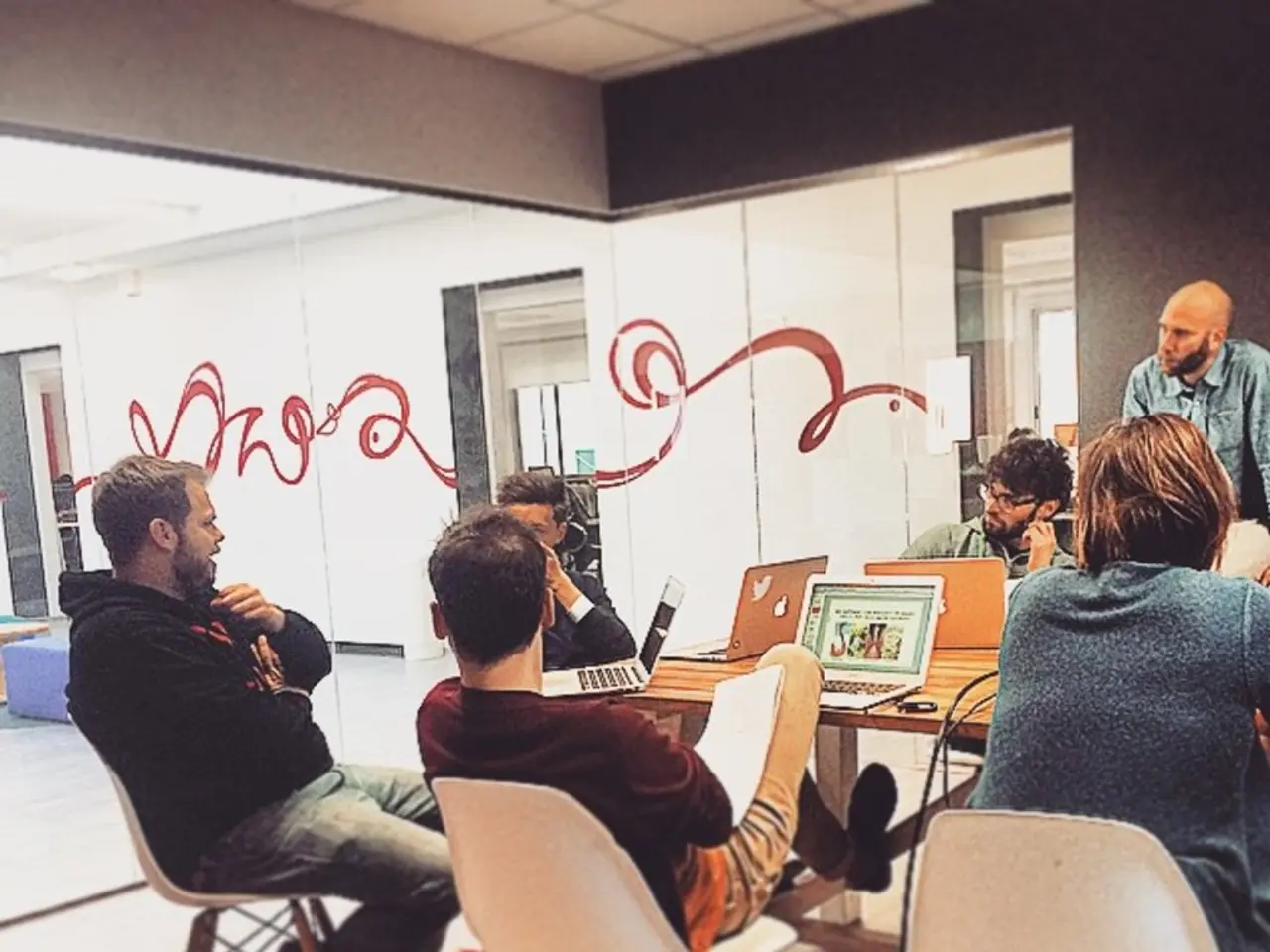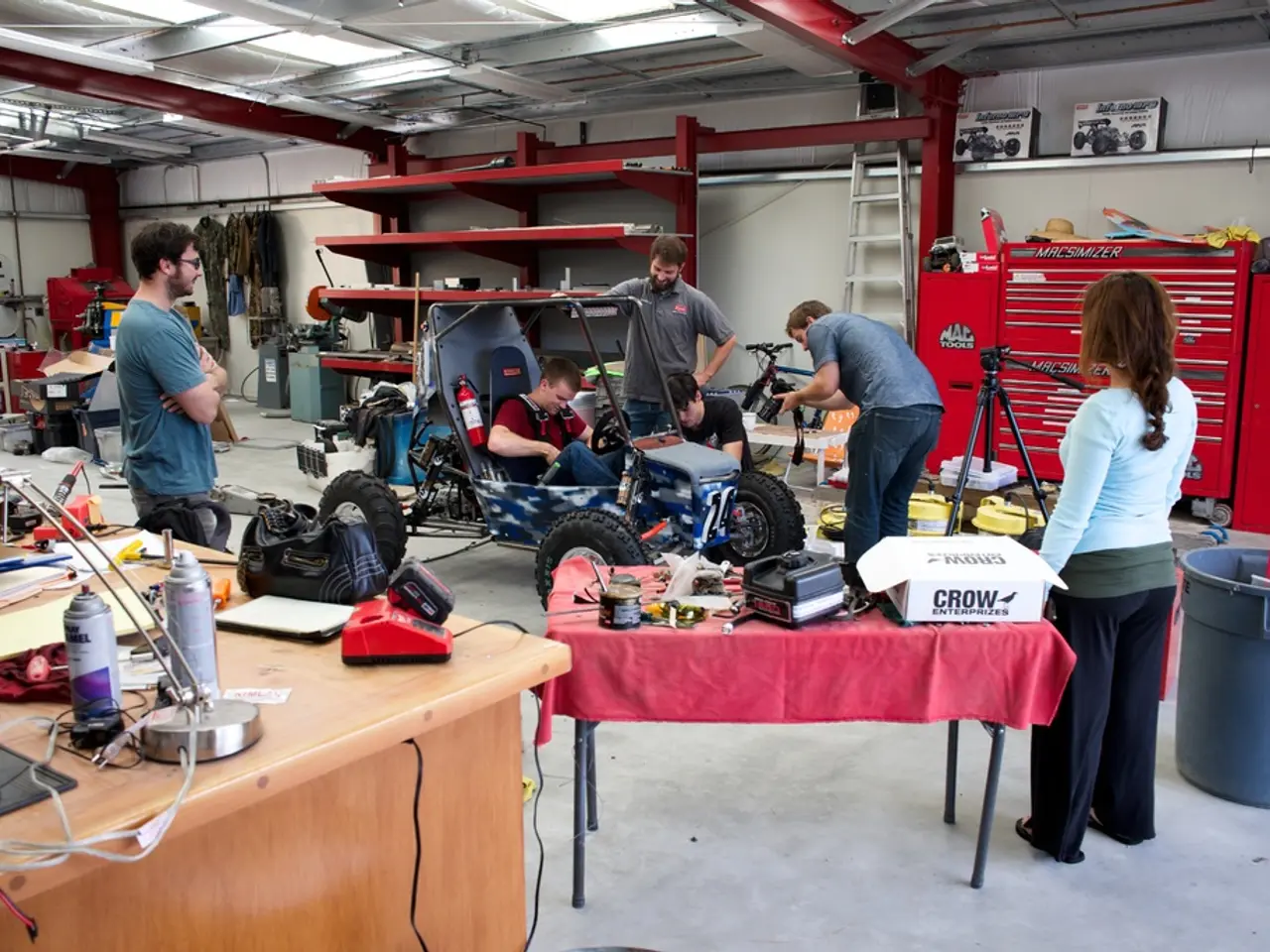Strengthening public broadcasting: Could joint efforts be the solution?
The University of Westminster has launched a new research initiative, InnoPSM, aimed at shaping better organisational and public policies for Public Service Media (PSM). Funded by the Arts and Humanities Research Council (AHRC), the project seeks to address the challenges facing PSM institutions in an era of rapid technological change and shifting audience behaviours.
InnoPSM will collaborate with the Creative Industries Policy & Evidence Centre (PEC) based at Cardiff University, learning from their insights and findings. The project's focus is on the digital challenges confronting PSM institutions in countries such as the UK and the Nordic countries, which are at the forefront of technological innovation.
The project aims to achieve the greatest impact through a mandated and accountable institutional provider of PSM content with a public service ethos instilled over a long period of time. To achieve this, InnoPSM plans to bring together expertise to envision broadcasting anew and to rethink UK broadcasting policy in light of ongoing transformations.
The project will investigate how PSM can maintain democratic values amid commercial and technological threats, and encourage collaboration as a key strategy to safeguard and innovate within PSM institutions, ensuring their relevance and resilience. Specific issues such as the privatization of Channel 4, engagement with younger audiences, and regulatory options to protect PSM functions will also be addressed.
InnoPSM will include the BBC, other PSM organisations such as YLE of Finland and ORF of Austria, and the European Broadcasting Union-EBU and the Public Media Alliance-PMA. The project will organise a series of stakeholder-academia workshops on these key issues, aiming to expand the pool of academic expertise to offer insights and knowledge relevant to inform the debate on PSM.
The debate on PSM is a paradox, with a policy backlash against profit-driven digital platforms and market failures in media provision, yet the role of PSM in promoting the public interest is being reappraised. InnoPSM emphasises innovation through interdisciplinary collaboration to develop robust models and policies that support PSM’s enduring role in society.
Journalism occupations are included on the DCMS's list of Creative Occupations, as mentioned in the blog, "Why accredited qualifications matter in journalism." Other relevant topics discussed in various blogs include class inequalities in film funding, the equity gap in Britain's creative industries, the co-location of the creative industries with other industrial strategy priority sectors, and the self-employed workforce in the creative industries.
The InnoPSM project will also focus on funding, innovation in content and service provision, distribution and discoverability of content, and new forms of accountability facilitated by digital technologies. The project will also address copyright and AI, presenting a new AI Intellectual Property Right for composers, authors, and artists.
In conclusion, the InnoPSM project is a significant step towards ensuring the future and safeguarding of PSM. By fostering collaboration among diverse stakeholders, the project aims to explore innovative approaches to sustaining PSM in a rapidly changing media environment.
- The University of Westminster's InnoPSM project, funded by the Arts and Humanities Research Council, is collaborating with the Creative Industries Policy & Evidence Centre to address digital challenges in Public Service Media (PSM) institutions.
- The project focuses on countries like the UK and the Nordic countries, which are at the forefront of technological innovation.
- InnoPSM aims to create a mandated and accountable institutional provider of PSM content, with a public service ethos, to maintain relevance and resilience.
- The project will investigate how PSM can maintain democratic values amid commercial and technological threats, encouraging collaboration as a key strategy.
- Issues such as the privatization of Channel 4, engaging with younger audiences, and regulatory options to protect PSM functions will be addressed.
- InnoPSM will include collaborations with the BBC, YLE of Finland, ORF of Austria, the European Broadcasting Union-EBU, and the Public Media Alliance-PMA.
- The project will organise workshops to expand the pool of academic expertise, addressing topics like funding, content innovation, distribution, discoverability, and new forms of accountability, as well as copyright and AI.
- InnoPSM emphasises innovation through interdisciplinary collaboration to develop robust models and policies that support PSM’s enduring role in society, including journalism occupations, which are considered Creative Occupations by DCMS.




